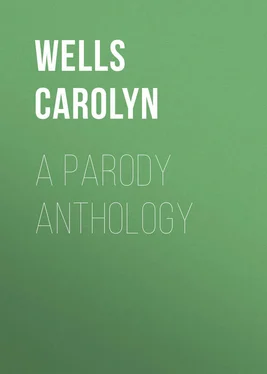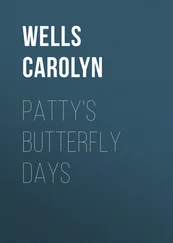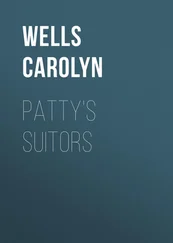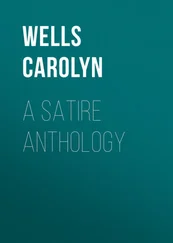Carolyn Wells - A Parody Anthology
Здесь есть возможность читать онлайн «Carolyn Wells - A Parody Anthology» — ознакомительный отрывок электронной книги совершенно бесплатно, а после прочтения отрывка купить полную версию. В некоторых случаях можно слушать аудио, скачать через торрент в формате fb2 и присутствует краткое содержание. Жанр: foreign_prose, на английском языке. Описание произведения, (предисловие) а так же отзывы посетителей доступны на портале библиотеки ЛибКат.
- Название:A Parody Anthology
- Автор:
- Жанр:
- Год:неизвестен
- ISBN:нет данных
- Рейтинг книги:4 / 5. Голосов: 1
-
Избранное:Добавить в избранное
- Отзывы:
-
Ваша оценка:
- 80
- 1
- 2
- 3
- 4
- 5
A Parody Anthology: краткое содержание, описание и аннотация
Предлагаем к чтению аннотацию, описание, краткое содержание или предисловие (зависит от того, что написал сам автор книги «A Parody Anthology»). Если вы не нашли необходимую информацию о книге — напишите в комментариях, мы постараемся отыскать её.
A Parody Anthology — читать онлайн ознакомительный отрывок
Ниже представлен текст книги, разбитый по страницам. Система сохранения места последней прочитанной страницы, позволяет с удобством читать онлайн бесплатно книгу «A Parody Anthology», без необходимости каждый раз заново искать на чём Вы остановились. Поставьте закладку, и сможете в любой момент перейти на страницу, на которой закончили чтение.
Интервал:
Закладка:
Carolyn Wells
A Parody Anthology
Acknowledgment is hereby gratefully made to the publishers of the various parodies for permission to include them in this compilation.
The parodies from “Diversions of the Echo Club," by Bayard Taylor, and Mary and Her Lamb, from “New Waggings of Old Tales," by Frank Dempster Sherman, are published by permission of Messrs. Houghton, Mifflin & Company.
By the courtesy of John Lane are included the parodies of Anthony C. Deane, from his volume “New Rhymes for Old;" and those of Owen Seaman, from volumes “In Cap and Bells" and “The Battle of the Bays."
Bed During Exams is from “Cap and Gown," published by Messrs. L. C. Page & Company.
The Golfer's Rubaiyat, by H. C. Boynton, is from “A Book of American Humorous Verse," published by Messrs. Herbert S. Stone & Company.
Staccato to O Le Lupe is from “Last Scenes from Vagabondia," by Bliss Carman and Richard Hovey, published by Messrs. Small, Maynard & Company.
The two poems by Ben King are published by Forbes & Co.
The following are published by Charles Scribner's Sons: Song, from “The Book of Joyous Children," by James Whitcomb Riley; Home Sweet Home, and Imitation, from “Poems" of H. C. Bunner; and Song of a Heart, and Godiva, from “Overheard in a Garden," by Oliver Herford.
THE fact that parody has been ably defended by many of the world's best minds proves that it is an offensive measure, at least from some viewpoints. But an analysis of the arguments for and against seems to show that parody is a true and legitimate branch of art, whose appreciation depends upon the mental bias of the individual.
To enjoy parody, one must have an intense sense of the humorous and a humorous sense of the intense; and this, of course, presupposes a mental attitude of wide tolerance and liberal judgments.
Parodies are not for those who cannot understand that parody is not necessarily ridicule. Like most other forms of literature, unless the intent of the writer be thoroughly understood and appreciated, the work is of little value to the reader.
The defenders of parody have sometimes endeavored to prove that it has an instructive value, and that it has acted as a reforming influence against mannerisms and other glaring defects. One enthusiastic partisan confidently remarks: “It may gently admonish the best and most established writer, when, from haste, from carelessness, from over-confidence, he is in danger of forfeiting his reputation; it may gently lead the tyro, while there is yet time, from the wrong into the right path." But this ethical air-castle is rudely shattered by facts, for what established writer ever changed his characteristic effects as a result of the parodies upon his works, or what tyro was ever parodied?
It has been said, too, that a good parody makes us love the original work better; but this statement seems to lack satisfactory proof except, perhaps, on the principle that a good parody may lead us to know the original work more thoroughly.
Perhaps the farthest fetched argument of the zealous advocates of the moral virtues of parody is found in Lord Jeffrey's review of the well-known “Rejected Addresses," where he says, “The imitation lets us more completely into the secret of the original author, and enables us to understand far more clearly in what the peculiarity of his manner consists than most of us would ever have done without this assistance." If this be true at all, it is exemplified in very few instances, and is one of the least of the minor reasons for the existence of a parody.
The main intent of the vast majority of parodies is simply to amuse; but to amuse intelligently and cleverly. This aim is quite high enough, and is in no way strengthened or improved by the bolstering up qualities of avowed virtuous influences.
The requirements of the best parody are in a general way simply the requirements of the best literature of any sort; but, specifically, the true parodist requires an exact mental balance, a fine sense of proportion and relative values, good-humor, refinement, and unerring taste. Self-control and self-restraint are also needed; a parodist may go to the very edge, but he must not fall over.
The fact that poor parodies outnumber the good ones in the ratio of about ten to one (which is not an unusual percentage in any branch of literature), is because a wide and generous sense of humor is so rarely found in combination with the somewhat circumscribed quality of good taste. It is, therefore, on account of the abuse of parody, and not the use of it, that a defence of the art has been found necessary.
The parody has the sanction of antiquity, and though its absolute origin is uncertain, and various “Fathers of Parody" have been named, it is safe to assume that it began with the Greeks. The Romans, too, indulged in it, and its continuance has been traced all through the Middle Ages; but these ancient parodies, however acceptable in their time, are of little interest to us now, save as heirlooms. Their wit is coarse, their humor heavy; they are usually caustic and often irreverent.
In the seventeenth and eighteenth centuries the art of parody began to improve, and during the nineteenth it rose to a height that demanded recognition from the literary world.
It is interesting to note that the age of English parody was ushered in by such masterpieces as the “Rolliad" and the “Anti-Jacobin," followed by the “Rejected Addresses" and the “Bon Gaultier Ballads." Later came Thackeray, Calverley, Swinburne and Lewis Carroll, also Bayard Taylor, Bret Harte, and Phœbe Cary. More modern still is the work of Rudyard Kipling, Anthony C. Deane, H. C. Bunner, and Owen Seaman.
Though some of these are classed among the minor poets, they are all major parodists and approach their work armed at all points.
The casual critic of parodies, as a rule, divides them into two classes, which, though under various forms of terminology, resolve themselves into parodies of sound and parodies of sense. But there are really three great divisions, which may be called “word-rendering," “form-rendering," and “sense-rendering."
The first, mere word-rendering, is simply an imitation of the original, and depends for its interest entirely upon the substitution of a trivial or commonplace motive for a lofty one, and following as nearly as possible the original words.
Form-rendering is the imitation of the style of an author, preferably an author given to mannerisms or affectation of some sort. The third division, sense-rendering, is by far the most meritorious, and utilizes not only the original writer's diction and style, but follows a train of thought precisely along the lines that he would have pursued from the given premises.
This class of parody is seen at its best in Catherine Fanshawe's “Imitation of Wordsworth," and Calverley's “The Cock and the Bull."
But though parodies of this sort are of more serious worth, the other classes show examples quite as good in their own way.
Lewis Carroll's immortal parody of Southey's “Father William" is merely a burlesque of the word-rendering type, yet it is perfect of its kind and defies adverse criticism.
Miss Cary was a pioneer of parody in America and one of the few women writers who have done clever work of this sort. Miss Cary's parodies are numerous and uniformly first-class examples of their kind. They are collected in a small book, now out of print, and are well worth reading.
Of course, parodies which burlesque the actual words of the original are necessarily parodies of some particular poem, and often not so good an imitation of the style of the author.
More difficult than the parody of a particular poem is the imitation or burlesque of the literary style of an author. To accomplish this, the parodist must be himself a master of style, a student of language, and possessed of a power of mimicry with an instant appreciation of opportunities.
Читать дальшеИнтервал:
Закладка:
Похожие книги на «A Parody Anthology»
Представляем Вашему вниманию похожие книги на «A Parody Anthology» списком для выбора. Мы отобрали схожую по названию и смыслу литературу в надежде предоставить читателям больше вариантов отыскать новые, интересные, ещё непрочитанные произведения.
Обсуждение, отзывы о книге «A Parody Anthology» и просто собственные мнения читателей. Оставьте ваши комментарии, напишите, что Вы думаете о произведении, его смысле или главных героях. Укажите что конкретно понравилось, а что нет, и почему Вы так считаете.












